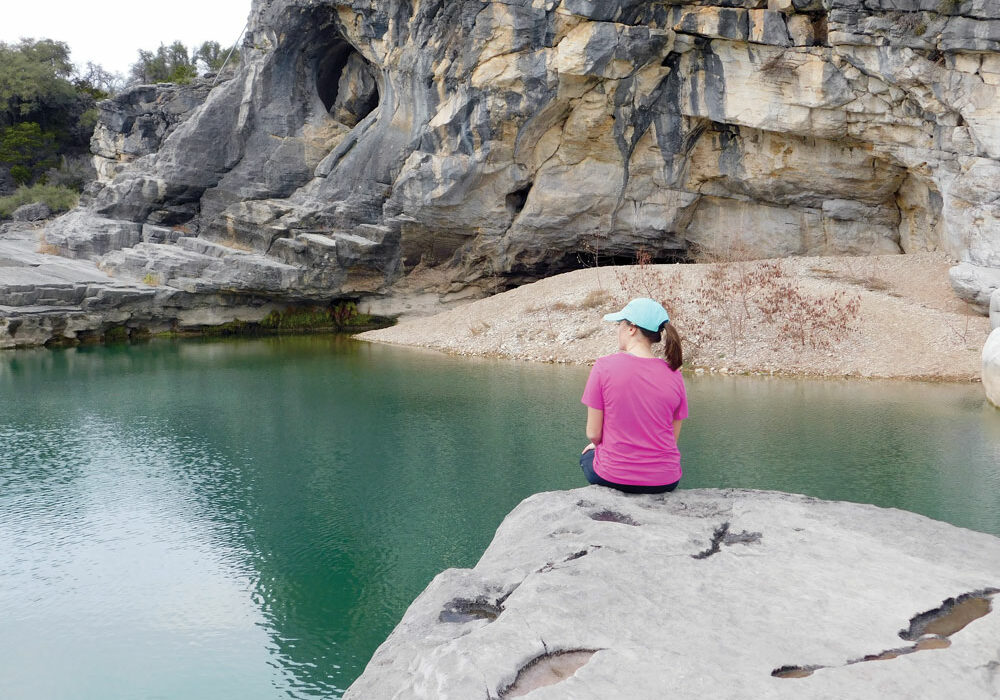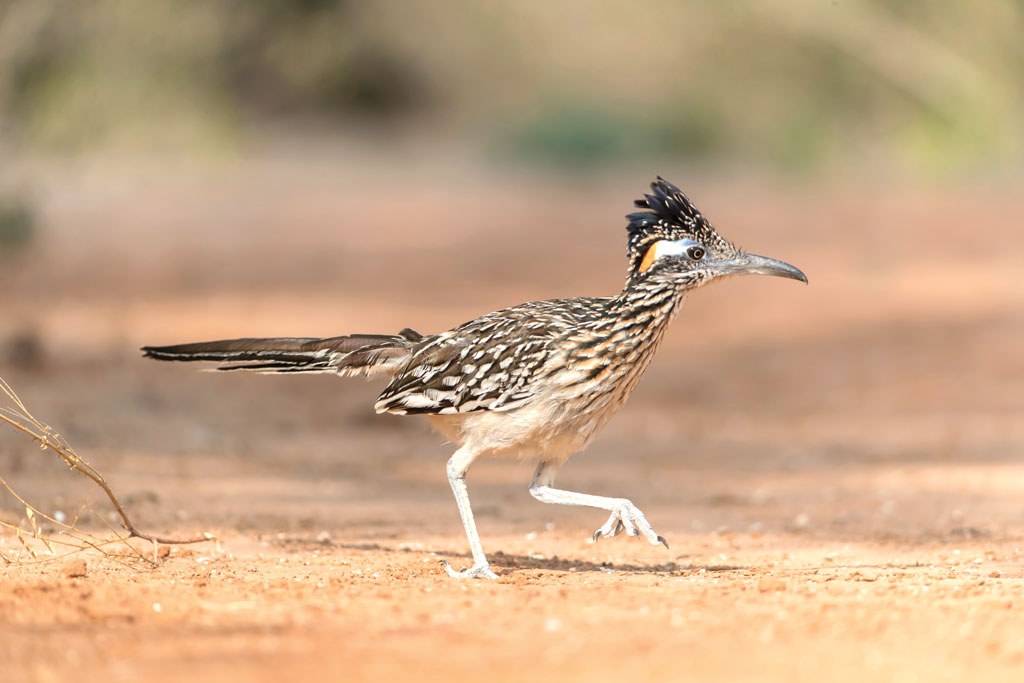
Pedernales Falls State Park, with its pockets of calming water, is the perfect spot for some therapeutic time spent in nature. Staff photo by Jennifer Greenwell
Take a walk without going anywhere. Find a tree and touch it. Keep touching it. Just stay there. Feel the rough bark on your fingertips and against your palm. With phone off — completely off — find a favorite spot in nature and breathe. That’s all. Just breathe. Feel the warmth of the sun on your face or the soft brush of a breeze on your cheek. You will relax, feel calm, find peace. You are forest bathing.
Forest bathing is a Japanese practice that has found its way into the Highland Lakes. Known as Shinrin-yoku in Japan, forest bathing practitioners become fully immersed in nature — essentially taking a bath in natural beauty but clothed.
Wildlife biologist-turned-licensed counselor Amy Sugeno takes forest bathing one step further. As a wildlife biologist for over two decades, she experienced firsthand the healing benefits of nature. Shifting her focus from scientist to counselor, she regularly incorporates mindfulness in nature into her practice. Using eco-therapy, she treats depression, post-traumatic stress disorder, anxiety, and trauma by connecting patients with the great outdoors.
“Eco-therapy is not the same as forest bathing,” said Sugeno, who’s also a licensed clinical social worker and clinical eco-therapist. “Forest bathing is not goal-oriented, unlike eco-therapy.”
Where forest bathing helps people slow down and become aware of nature, eco-therapy offers a way for patients to talk about difficult experiences in a relaxing atmosphere.
“Perhaps we aren’t making as much progress indoors in my office as we want,” Sugeno said. “So we want to try something different—walking, being in nature, walking or standing or sitting side by side. Or, perhaps the client finds it difficult to sit and talk indoors, which is common with processing trauma, (attention-deficit/hyperactivity disorder), or anxiety.”
In these cases, Sugeno takes her patients for a walk in the wilderness, exploring which sights and sounds feel the most helpful.
“For one client, the sound of running water might be more helpful,” she explained. “For another, sitting where there is a view or, for another, a sunrise hike.”
Using nature to recharge our burned-out batteries can be easily achieved in the Highland Lakes with parks, lakes, and inspiring landscapes abound. Sugeno finds her personal happy place at Doeskin Ranch in the Balcones Canyonlands National Wildlife Refuge near Marble Falls.
“I am more relaxed, better able to handle life’s difficulties,” Sugeno said of her own experiences in nature. “I am happier, more patient. I feel more gratitude, and I am better able to be in the moment, enjoying whatever is happening rather than worrying about other things.”
Unlike eco-therapy, forest bathing can be done by anyone in any natural setting. Both have substantial benefits, according to several recent studies. One study found that being around trees can lower a person’s risk of cancer. According to the study, trees emit a chemical that searches for and kills tumor cells and other infected cells while sparing healthy ones. Another study has shown how natural light in a hospital room lessoned pain for surgery patients. Other physical benefits include lowered blood pressure and blood sugar, increased ability to focus and concentrate, and decreased fatigue. Mental and emotional benefits include improved self-image, memory, and mood as well as decreased feelings of loneliness and sadness.
“(When we are outdoors), I talk (to patients) about how simply being in nature passively helps with so many things that are important for overall mental health,” Sugeno said. “It helps with nervous system regulation, easing of anxiety and depression symptoms, and easing of physical pain. It develops feelings of a connection to something larger than their struggles.”
Sugeno hosts a free Mindfulness in Nature meetup group to help increase mindful awareness of and connection to nature. Each outing lasts about two hours with the group walking less than one mile.
“Spending time in nature and practicing mindfulness are not panaceas for all of life’s problems,” Sugeno said, “but engaging in both of these can help. When I fall behind and do not practice both of these, I can tell. I become more stressed and irritable, and life just feels harder.”











